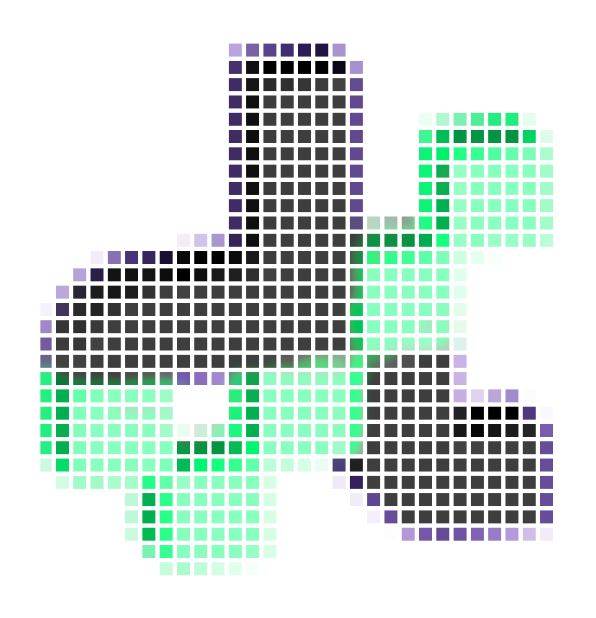DFCADSegmentator component#
Inputs:
|
The point cloud clusters already segmented by normals. |
|
The DFAssembly object. |
|
From 0 to 1, it’s the sin value. By default 0.1. The closer to 0 the less permissive and viceversa to 1. |
|
From 0 to infinite. By default 0.1. The closer to 0 the less permissive your point. |
Outputs:
o_clusters |
The clouds associated to each beam. |
Code:
#! python3
import System
import Rhino
from ghpythonlib.componentbase import executingcomponent as component
from Grasshopper.Kernel import GH_RuntimeMessageLevel as RML
from diffCheck.diffcheck_bindings import dfb_segmentation
from diffCheck.diffcheck_bindings import dfb_geometry
from diffCheck import df_cvt_bindings
class DFCADSegmentator(component):
def RunScript(self,
i_clouds: System.Collections.Generic.IList[Rhino.Geometry.PointCloud],
i_assembly,
i_angle_threshold: float = 0.1,
i_association_threshold: float = 0.1) -> Rhino.Geometry.PointCloud:
if i_clouds is None or i_assembly is None:
self.AddRuntimeMessage(RML.Warning, "Please provide a cloud and an assembly to segment.")
return None
if i_angle_threshold is None:
i_angle_threshold = 0.1
if i_association_threshold is None:
i_association_threshold = 0.1
o_clusters = []
df_clusters = []
# we make a deepcopy of the input clouds
df_clouds = [df_cvt_bindings.cvt_rhcloud_2_dfcloud(cloud.Duplicate()) for cloud in i_clouds]
df_beams = i_assembly.beams
df_beams_meshes = []
rh_beams_meshes = []
for df_b in df_beams:
rh_b_mesh_faces = [df_b_f.to_mesh() for df_b_f in df_b.side_faces]
df_b_mesh_faces = [df_cvt_bindings.cvt_rhmesh_2_dfmesh(rh_b_mesh_face) for rh_b_mesh_face in rh_b_mesh_faces]
df_beams_meshes.append(df_b_mesh_faces)
rh_beams_meshes.append(rh_b_mesh_faces)
# different association depending on the type of beam
df_asssociated_cluster_faces = dfb_segmentation.DFSegmentation.associate_clusters(
is_roundwood=df_b.is_roundwood,
reference_mesh=df_b_mesh_faces,
unassociated_clusters=df_clouds,
angle_threshold=i_angle_threshold,
association_threshold=i_association_threshold
)
df_asssociated_cluster = dfb_geometry.DFPointCloud()
for df_associated_face in df_asssociated_cluster_faces:
df_asssociated_cluster.add_points(df_associated_face)
dfb_segmentation.DFSegmentation.clean_unassociated_clusters(
is_roundwood=df_b.is_roundwood,
unassociated_clusters=df_clouds,
associated_clusters=[df_asssociated_cluster],
reference_mesh=[df_b_mesh_faces],
angle_threshold=i_angle_threshold,
association_threshold=i_association_threshold
)
df_clusters.append(df_asssociated_cluster)
o_clusters = [df_cvt_bindings.cvt_dfcloud_2_rhcloud(cluster) for cluster in df_clusters]
for o_cluster in o_clusters:
if not o_cluster.IsValid:
o_cluster = None
ghenv.Component.AddRuntimeMessage(RML.Warning, "Some beams could not be segmented and were replaced by 'None'") # noqa: F821
return o_clusters
